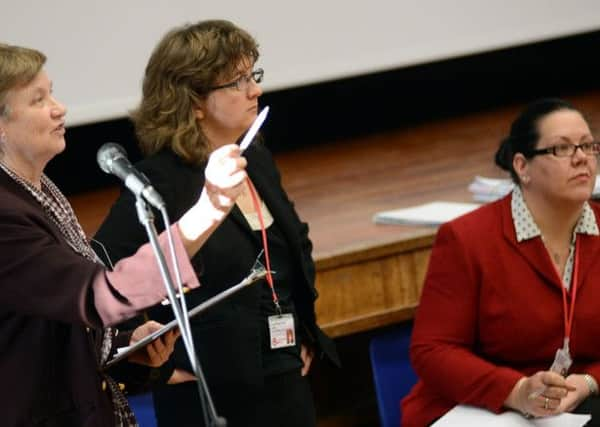Kay Cutts column: The time has come to streamline local government


A structure established in 1974 cannot expect to serve the county properly in 2014. The electronic revolution has changed the way we all work, with emails instead of letters and instant information via the internet.
You do not need to be an expert in local government to realise that significant savings for taxpayers can be achieved by having fewer councils occupying fewer buildings, employing fewer managers and delivering all services ‘under one roof’.
Advertisement
Hide AdAdvertisement
Hide AdUnitary councils already serve many parts of the country - Nottingham City, for example - and Northern Ireland is set to introduce 11 new “super-councils”, a reduction from 26 district councils. So why shouldn’t Nottinghamshire change?
Currently there are 307 borough and district councillors and 67 county councillors for Nottinghamshire, meaning a potential 374 councillors for a population of 750,000 approximately.
Forty-two of the 67 county councillors also sit on district councils, incidentally claiming an allowance from both councils.
I am not saying that these elected representatives are not good, hard-working people who care passionately about their communities, but do we need all these councils or councillors and can we afford them?
Advertisement
Hide AdAdvertisement
Hide AdCouncil tax is one of the highest bills that all householders have to pay and nowhere is this truer than in Nottinghamshire, which already has the highest tax rate of any shire council.
Add on top of this the extra average tax of £160.43 per year charged by the local borough and district councils.
Residents tell me they have had enough. After all, they pay their council tax to support services, not to sustain excessive numbers of administrators, buildings and councillors.
The vast majority of people I meet are only aware that “the council” provides their services and that they can approach “their local councillor” with questions and concerns.
Advertisement
Hide AdAdvertisement
Hide AdMany do not understand the difference between county and district councils and nor do they really care.
Why should they? Modern life is busy enough without having to guess which council provides which service, or which of three or four councillors to approach for help.
Far from benefitting democracy, the current system often causes confusion and delay. Surely having one councillor would be easier for everyone concerned, and if you are unhappy with their performance you can vote them out at the next election.
Currently, Nottinghamshire County Council is being assessed by the Boundary Commission, who will spend time and public money redrawing all the electoral division boundaries for the county.
Advertisement
Hide AdAdvertisement
Hide AdThe question they should be asking is: do we need a different structure instead of spending money fiddling with the existing one?
I agree with Mayor Eggington and Councillor Garner that two unitary councils, namely a North-West Nottinghamshire Council and South-East Nottinghamshire Council, would be a good model.
The simple building blocks would be Mansfield, Ashfield and Bassetlaw making one council and Broxtowe, Gedling, Rushcliffe and Newark & Sherwood making the other.
Residents could then elect the best councillors for the job, irrespective of whether the candidates were previously borough/district or county representatives.
Advertisement
Hide AdAdvertisement
Hide AdIncluding the existing Nottingham City Council, this would provide us with three unitary councils all of approximately the same population.
These would be more locally focused authorities with better economies of scale, able to just get on with the job. They would require fewer officers, buildings and councillors, saving us money.
I believe that this debate will only gather momentum and I am keen to hear the views of residents from across the whole county on the best way forward. What is certain is that only by spending less on buildings and local government bureaucracy will we have more to spend on services, keep council tax down and leave everybody with more money in their pocket.